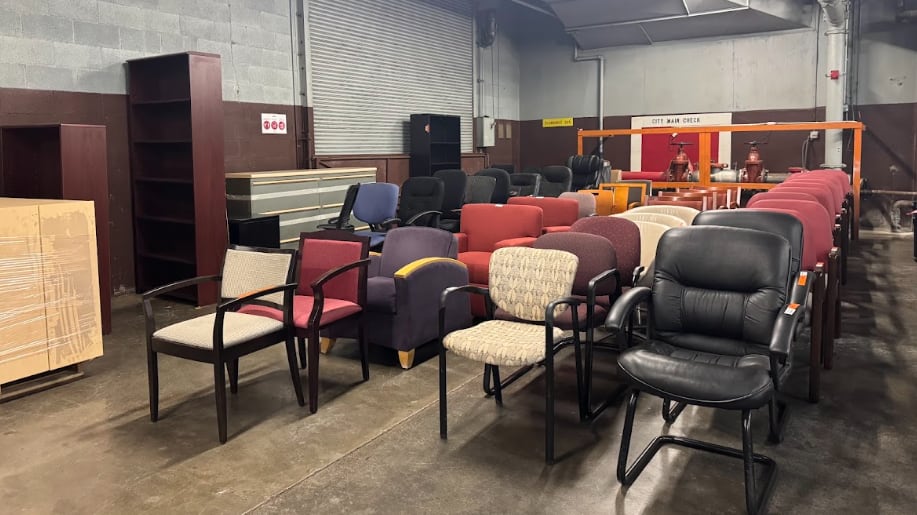USC Surplus Sales marked its return with an opening last Friday, selling discounted second-hand items that ranged from hairdryers to concrete lions for student customers to purchase. The program has come back after its discontinuation during USC’s COVID-19 closures.
Surplus Sales — now an online store — sells discounted dorm furniture and equipment donated by students, faculty and staff. The store also accepts items from various USC departments and buildings. Students can register to shop online and browse the Surplus items on its website. Once students successfully buy their items, they can schedule an appointment to pick up their items at its location on Grand Avenue across from USC’s Facility Planning and Management building.
When Calvin Holmes, who first came to USC in January as the Director of Mailing and Material Management Services at USC, learned that Surplus Sales was discontinued in 2020 during the pandemic, he realized it had been essential to USC’s sustainability mission.
“Prior to us re-resuming Surplus for move out, all those items would go to waste, right? They will go to a landfill,” said Holmes. “Us being able to provide this service offers us some opportunity to divert waste and then give back to the community. So give it back to the students. Give it back to the staff, faculty. It’s the best way for us to repurpose everything that we have on campus.”
Holmes says that most of their furniture and items come from on-campus dorms or schools within the university looking to offload used furniture or supplies.

For many who chose to donate, Surplus Sales will schedule a time to view the items before accepting them. They will then pick up the registered items through appointments only.
Second-hand stores like USC Surplus Sales play a key role in efforts to reduce waste and the environmental impacts of new product consumption.
“Second-hand stores are important sustainability efforts because there are so many impacts and externalities of conventional furniture consumption that go unnoticed,” said Kyra Ahrens, an environmental studies and policy student at UC Irvine, which also has many sustainability programs. “Second hand stores are a great alternative to buying things new because it eliminates any more emissions, waste, and just stuff overall that would’ve been created if something was bought new.”
Ahrens also emphasized that reuse can often be more effective in reducing waste than recycling.
“Second-hand stores have a greater impact on sustainability than recycling because it sort of like stopping the issue at the source rather than putting a band aid over a problem caused by the source,” said Ahrens. “By buying second-hand, you’re not creating any more stuff that would’ve eventually then needed to be recycling”
Beyond sustainability, the Surplus Store draws in interest through its cost and convenience.
“I think the whole nature of the second-hand marketplace is that it’s a lot more affordable,” said Lucas Damasco, a junior studying business administration and AI applications at USC. “It’s just the convenience factor as well as affordability that I definitely value.”
“It’s definitely better than ordering from Amazon, [or] fast fashion, [or] very convenient IKEA type locations, just because you’re reducing shipping costs as well as the green grass emissions that go into actually buying something online,” said Damasco.
